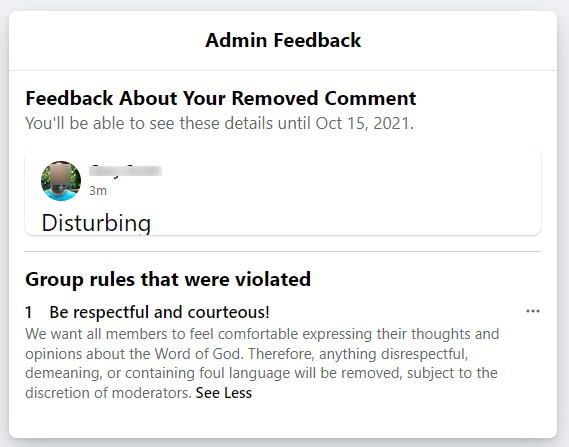The group that is putting out the Bible in a Year podcast that I’ve been listening to on and off (mainly off, I must admit) has a social media page for podcast participants. Someone posted a joke about one of the most horrific stories in the Bible, when God commands Abraham to sacrifice his own son Isaac.
“Wait,” Isaac asks in the meme, “don’t we need a ram?’
The original passage reads,
“The fire and wood are here,” Isaac said, “but where is the lamb for the burnt offering?”
Abraham answered, “God himself will provide the lamb for the burnt offering, my son.” (Genesis 22.7, 8)
It’s the initial confusion of a boy who’s probably beginning to suspect what’s up but can’t possibly accept it. It’s the confusion of a boy about to experience such trauma that I’m not sure multiple lifetimes of therapy and counseling could heal. It is, in short, the beginning of one of the most horrifying stories in the Bible, a story that non-believers point to as strong evidence of the immorality of the god portrayed in the Old Testament.
In the meme, Abraham answers Isaac’s confusion flippantly, “Not when you’ve got family.”

It’s a screenshot from some film or TV show with which I’m completely unfamiliar, so I’m likely missing something as memes depend often on the disconnect between the visual and the verbal. A quick search reveals the line is from the Fast and the Furious film franchise, something I know absolutely nothing about and have no interest in. Apparently, references to the importance of family in memes stem from these films.
I found the humor disturbing, though. Here’s a man joking about the fact that he’s about to kill his own son. That he was willing to do so in the first place is striking; that the Abraham in the meme is being flippant about it is obscene. So of course I called them on it with a single-word comment: “Disturbing.”
The administrator, though, didn’t like my comment and removed it.

Apparently, I wasn’t being respectful and courteous. They want “all members to feel comfortable expressing their thoughts and opinions about the Word of God” as long as those opinions don’t actually criticize the “Word of God.”
Was the comment disrespectful? I wasn’t criticizing the person, just the idea of the meme, so I don’t see how it was disrespectful.
Did I demean anyone with the comment? Not that I can see.
Did my comment include foul language? No, not at all.
Indeed, it was the meme itself that was disrespectful and demeaning. In making light of such a brutal and barbaric act that a supposed man of God was about to comment, it trivializes the trauma of the story and demeans victims of abuse at the hands of those who are supposed to be protecting them.
I’m sure the common response would be, “Come on, man — it’s just a joke! Relax.” But it makes me wonder how they would react were the roles reversed. Let’s say I share a joke I encountered on Twitter: “When the Holy Ghost impregnated Mary with Jesus, was he shouting ‘Oh me! Oh me! Yes! Yes! Oh me!’?” I don’t think they would be willing to accept the “Come on, man — it’s just a joke! Relax!” argument.
Of course, this “joke” (it’s really not even funny at all) is problematic to believers for two reasons. Most obviously, It’s very disrespectful of one of the central tenants of Christianity, turning it into a crude sex joke. The virgin birth of Jesus is, for some strange reason, very important in traditional Christian theology, and the way this happens is with God himself (in the form of the Holy Ghost) performing the actual impregnation. In no way would this really be thought of as a sexual act. It was a miracle according to Christians. To juxtapose this miracle with the crude image of a sex act demeans the nature of the supposed miracle and makes a mockery of the claim that Jesus was born to a virgin. In truth, it’s not a joke as much as a crude attempt at humor. But that leads to the second reason it’s problematic for believers: It highlights the illogical nature of that central tenant in a way that’s hard to ignore. Due to the dogma of the Trinity, God the Father, Jesus, and the Holy Ghost are all just God. So God impregnated Mary with God. That makes Mary both God’s spiritual spouse and God’s mother. That’s illogical and disturbing, and the joke gets at that around the edges by pointing out that the Holy Ghost is also God, so instead of saying “Oh God!” he/it would be declaring “Oh me!” It’s a very unrefined way of making a basic observation: the idea of the Trinity is illogical and makes the incarnation of Jesus a weirdly incestuous act.
In short, believers don’t like having their beliefs mocked, and that joke does that. But what it’s mocking cuts close to the theological bone: it takes a basic tenant of Christianity and says, “Okay, let’s look at it from a purely logical, material point of view.” But in telling this “joke,” I would essentially be mocking Christian teaching and by proxy Christians themselves.
But doesn’t the original meme do that to victims of domestic abuse? Doesn’t it make light of one of the most tragically common and inexcusable crimes humans across all cultures have historically committed? Certainly. But because it’s wrapped in the cloak of religious dogma, many believers are blind to it.
 Today’s reading with Fr. Mike included Numbers 15, and if I’m writing about it, you can probably guess why: more brutality. Verses 32 through 36 read
Today’s reading with Fr. Mike included Numbers 15, and if I’m writing about it, you can probably guess why: more brutality. Verses 32 through 36 read